Ofer Halevi: "Rabbi David Abuhatzeira Taught Me an Unforgettable Lesson"
Ofer Halevi, founder and director of the largest and most successful religious theater in Israel, talks about his youth on a secular kibbutz, his professional rise, and the happiness he couldn't find in secular acting.
 Ofer Halevi
Ofer HaleviTen years ago, Ofer Halevi, a once successful theater actor and now a Baal Teshuva scholar, found his soul torn. At that time, Halevi was studying at a kolel, while also engaging in theater on the side. One day, unexpectedly, someone approached him with an offer: to completely leave the world of acting in exchange for a high monthly scholarship.
"I will never forget this dilemma," Halevi shares in an open interview with Hidabroot. "I was simply torn. At that time, I knew that serving Hashem was the most important thing in the world, including of course Torah study, but on the other hand, theater was a huge part of my life. Moreover, I sincerely believed and witnessed that I could positively influence people through it, and thus, by G-d's will, bring them closer to Hashem. This proposal deeply affected me, and I was torn between these two directions.
"I didn’t know what to do, and I turned to Rabbi David Abuhatzeira from Nahariya. I told him my situation, and Rabbi Abuhatzeira told me not to stop with the theater, teaching me an unforgettable lesson. He said that the Jewish people also need people like me, who act from within the Torah. And as I mentioned, the Rabbi taught me a great lesson in acting. He stated that the most important thing in acting, especially in humor, is to surprise, to come from unexpected places. Indeed, unpredictable acting is what captivates the most. Hearing this from Rabbi David himself was very powerful for me.
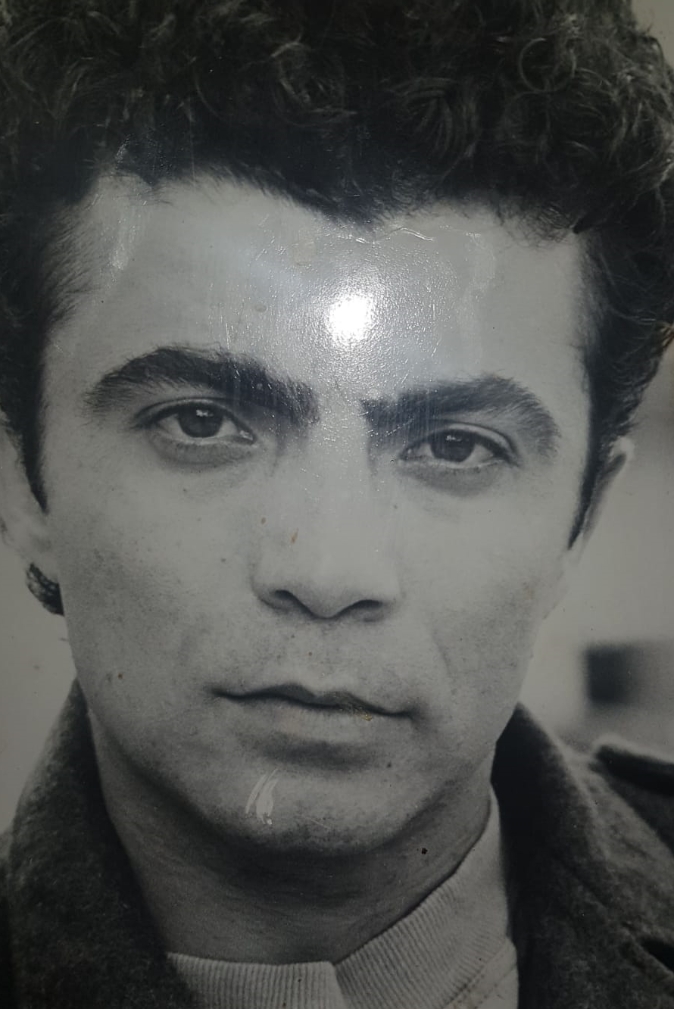 Ofer Halevi in his youth
Ofer Halevi in his youthBy the way, my conversation with Rabbi Abuhatzeira is also somewhat connected to a book I published, 'Lead Role,' which is now sold in stores and soon available at Hidabroot Shops. The book talks about an artist's search journey, but this journey is actually about anyone looking for truth and a way of life that will help them live happy and satisfying lives. One of the things revealed in the book is that each of us has a lead role in this world that we need to discover and pursue to the end.",
And Then, a Knock on the Door
Ofer Halevi, 51, married and father of nine, resides in El'ad and serves as the community rabbi for Baalei Teshuva. He is an active theater actor and creator who founded the religious theater 'Mesamechei Lev.' This theater, according to Halevi, is the largest religious theater in the country, simultaneously hosting 15 performances for men, women, children, and families. Most of the shows are written and directed by Halevi himself.
I meet Halevi at a Jewish culture festival initiated by the Jewish Film School 'Torat Chaim'. The festival, which took place last week in Yad Binyamin and attracted hundreds of attendees, included lectures, discussions, plays, film screenings, student and graduate presentations, and various meetings with well-known industry creators.
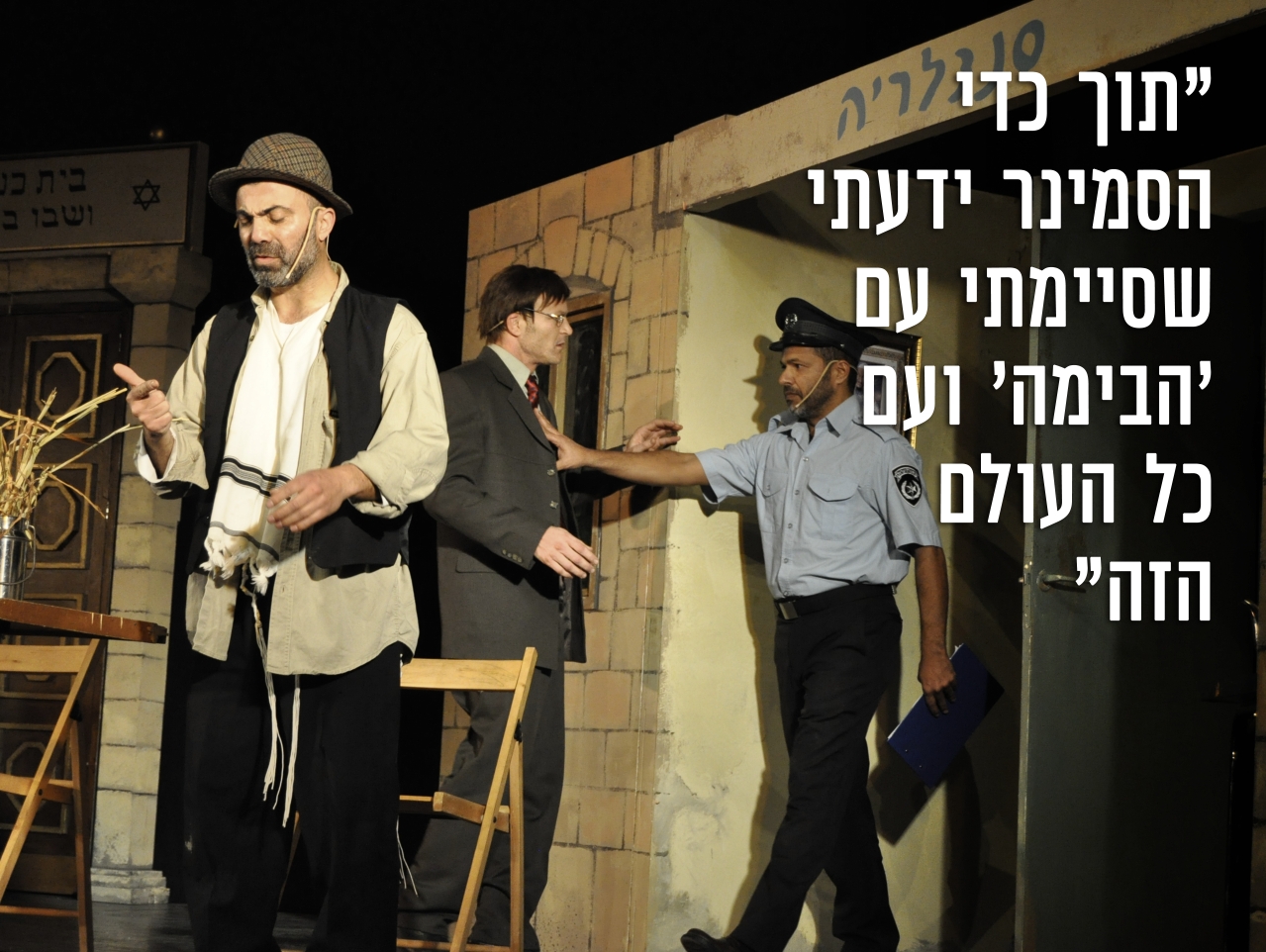 (Photo: Sahar Ram)
(Photo: Sahar Ram)Our conversation is light-hearted, seasoned with humor, and it seems like Halevi's artistic talent is evident even in casual conversations, not just on stage. "I grew up in Tel Aviv in a traditional family, half Moroccan and half Persian, in the Tikva neighborhood," he recalls. "When I was 13, I moved to live on the Hashomer Hatzair kibbutz Ein Harod, where I stayed until the army. Even before the army and during it, I was always somewhat connected to tradition.
"During the army, I began to experience thoughts of returning to religious observance, but it didn't progress beyond that. After my release, I started studying at 'Beit Zvi' acting school. With G-d's help, I won competitions. The most prestigious one was the 'Teatronetto.' 300 solo performances entered, from which 15 were selected to compete, and then the first place was chosen, which, thank G-d, I won. I believe that thanks to this achievement, offers started flowing like water, and not long after, I even received an offer from the renowned actor Al Pacino to act alongside him in a film shot in Israel.
"Additionally, thanks to the competition win, I felt something I had often felt in my life. I was always searching for happiness, always thinking it was just around the corner. Just finish this or that, and it will come. Just finish high school, then I'll be happy. Just enlist, and then. I'll study acting, and happiness will come. And so on and so on. I remember truly believing that if I won the Teatronetto, I would genuinely be happy, and this time for a long time.
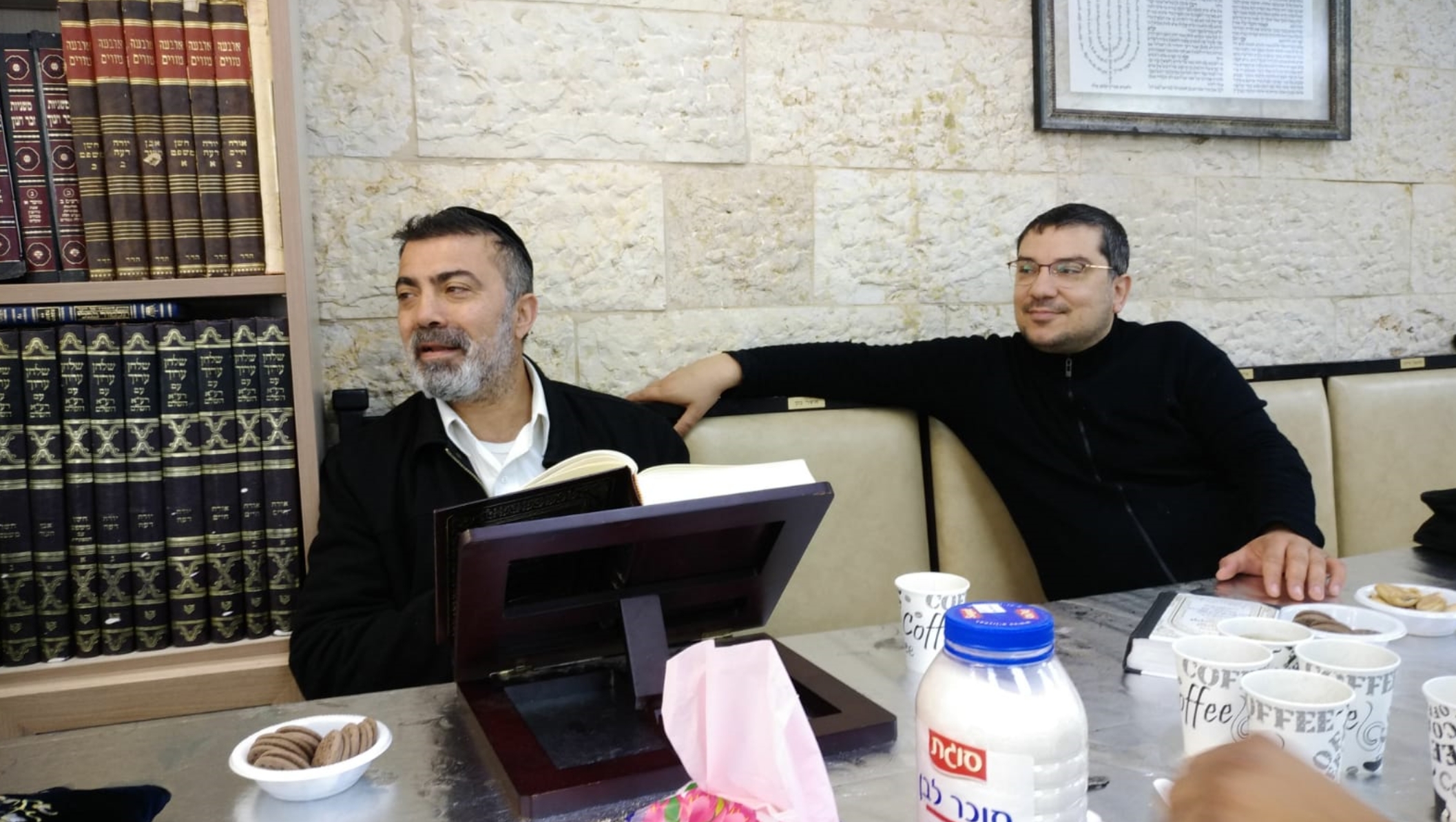
"After winning, I was genuinely happy, but it passed very quickly, much faster than I had imagined. I thought to keep searching for happiness in this field and started acting at Habima. During that period, many doors opened for me, and by G-d's grace, I achieved wonderful things. But again, nothing I experienced was “it.” Nothing truly made me happy for long. But I never despaired for a moment and continued searching.
"During that time, by the grace of Hashem, I got married. As a result, and also because shortly after our wedding, my grandmother passed away, I began to think more about the meaning of life, existential questions arose, where is it all going, what’s the purpose, and so on. I felt I wanted to find answers to these questions, and as a result, I decided to attend an Arachim seminar. Unfortunately, my wife didn’t want to join me. She wasn’t as interested in Chazara Beteshuva (returning to religious observance). We discussed it quite a bit during that time, and suddenly one day, a guy knocked on our door looking for my brother, who had recently become closer to Judaism and started keeping mitzvot.
"We opened the door, and this person said he had money he wanted to give to secular Jews wishing to attend an Arachim seminar. We saw it as a sign from heaven and went together. And the rest, as they say, is history. Already during the seminar, I knew I had finished with 'Habima' and that entire world."
"You Have Three Days to Live"
After Halevi grew stronger in his faith, he joined regular studies at a kolel for married men and engaged in theater as a secondary endeavor. "At the beginning of my return to observance, I slowed down with theater, and I dedicated most of my time to Torah study. Theater remained, but on the side. Then, as I said, came the offer to leave theater completely in exchange for a significant financial scholarship, the offer that led me to Rabbi David Abuhatzeira.
"I seriously considered leaving the theater world. When you begin to draw closer to Hashem, especially if you serve as a community rabbi, it may seem incompatible. You feel in some way that you have to decide, but you also feel you don't want to give up either side. I felt that, by G-d's grace, I had the talent to engage in both fields, and they both held significant value.
"That being said, I can understand those who oppose this connection. Because the field of acting, if it has no boundaries or a clear Torah perspective guiding it, can be very dangerous. If there isn't true Torah wisdom, you might find yourself in unfavorable places, so great restraint and guidance are necessary.
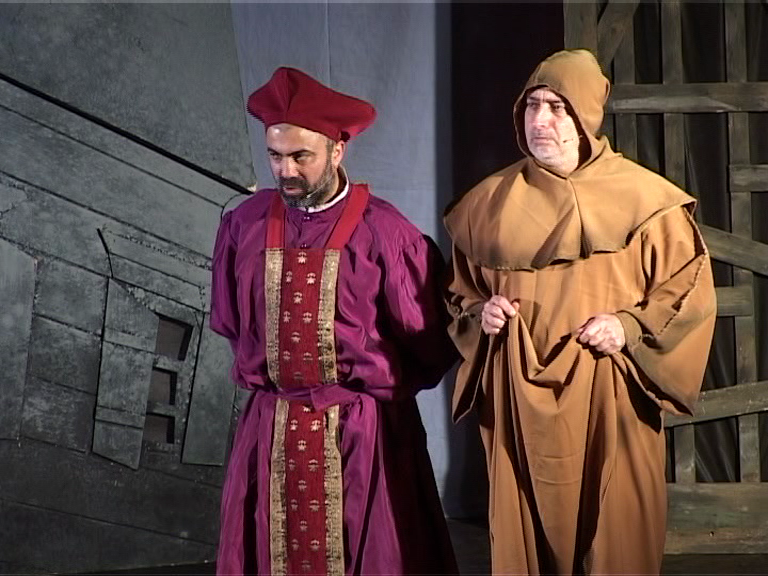 (Photo: Sahar Ram)
(Photo: Sahar Ram)"That’s why we have rabbis directing us. And we have a spiritual committee that approves our shows. There are very high “kashrut” levels for the performances. Sometimes they even provide criticism, and I am not afraid of it. If a person knows he is doing it for Hashem, then he is open to suggestions and improvements.
Because of these doubts and complexities," Halevi shares sincerely, "for quite some time, I was torn between the worlds, going to rehearsals, and feeling like it was Bitul Torah (a waste of time), not working in theater, and thinking maybe I'm doing the opposite of what Hashem wants from me. After the conversation with Rabbi Abuhatzeira, I understood that it’s truly possible to combine the two.
"There is a verse that says: 'Honor Hashem with your wealth.' The interpretation is that one should honor Hashem from his assets, from what Hashem gave him. Every person should know that Hashem sent him for a specific role. Each has his task. One should strive to listen to the inner voice and understand where Hashem wants to lead him. People genuinely need joy, especially in this generation. It is written: 'You shall go out with joy.' Through joy, one can overcome the toughest situations. People want to breathe, to relax and release to restore strength. And this is what we help them with, thank G-d. Beyond the performances, we also do acts of kindness in hospitals and similar places. You can say these activities are entirely life-saving.
"Once, together with Yehuda Shokron, also from the field, we visited a particular patient, a terminally ill man whom the doctors told: 'You have three days to live.' We sat with him, laughed, sang, and watched how his life forces returned to him before our eyes. The person lived another six months after we visited him and ultimately died from a heart attack induced by stress and fear. By the way, we did not give him the life forces. It was something he had; we just ignited his desire to live.
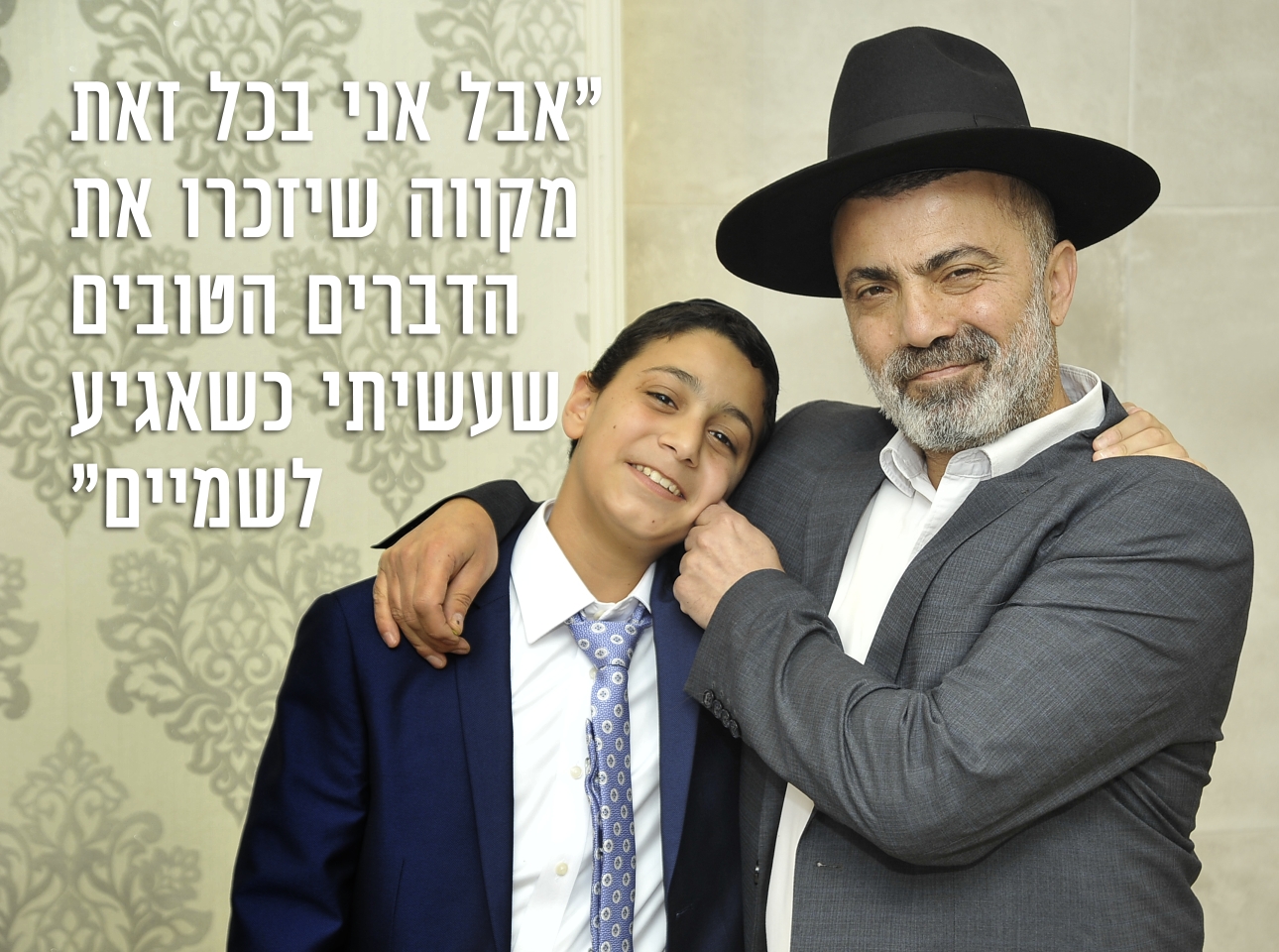
"Or, for example, a woman who already had an appointment for an abortion attended our play about abortions the night before. On that very evening, she decided to keep the baby. In another case, a well-known rabbi brought his wife, who was in deep depression, to our show. She thoroughly enjoyed it, laughed hysterically, and quickly recovered. Another very special performance we had in this context was a performance in front of women who were childless. Some of them approached us after the performance, saying we had released things stuck within them for years."
"I am, by G-d’s grace, opening gates of joy for people, and I have 60 congregants in my community whom I am their rabbi. So yes, I don't have a rabbinical certificate, but I still hope they will remember the good things I did when I reach the heavens."

